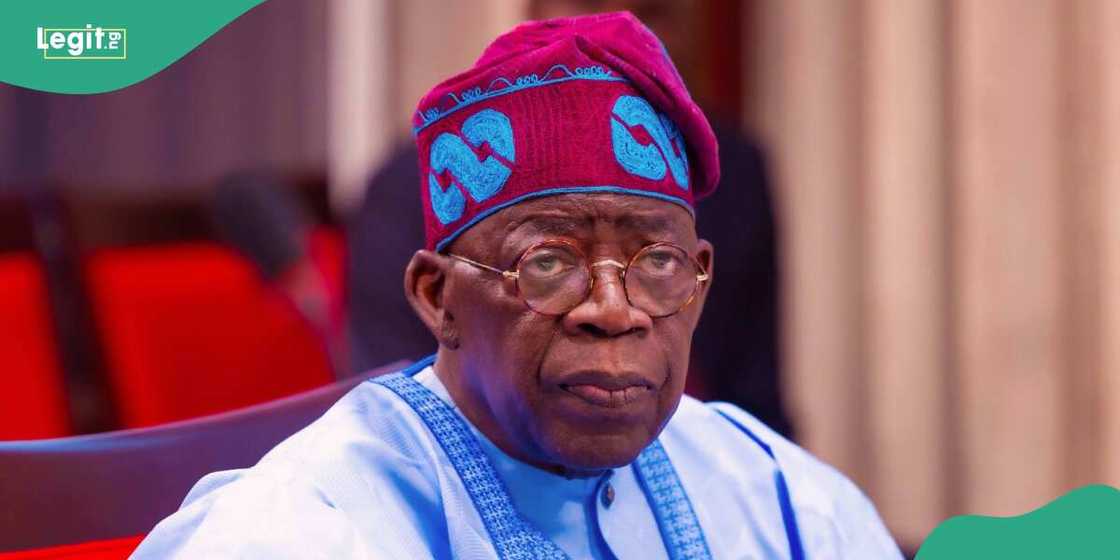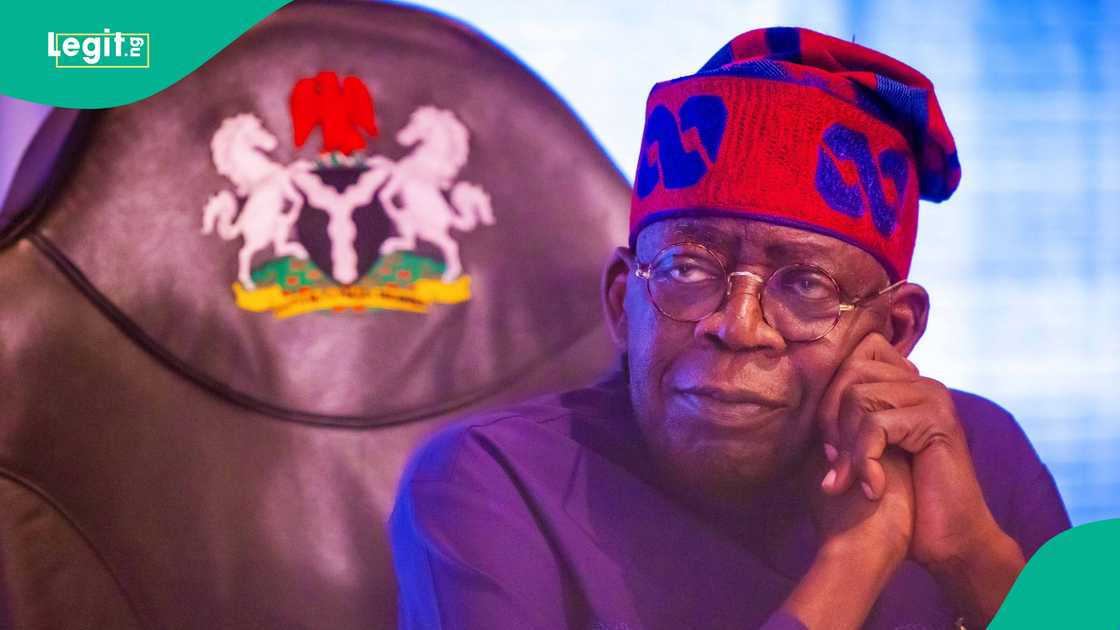Nigerians are facing a sobering economic reality, as the World Bank has projected that by 2025, approximately 139 million citizens will be living in poverty. This prediction comes despite President Bola Ahmed Tinubu’s implementation of various economic reforms intended to boost the nation’s prospects. Economic growth and increased government revenues have unfortunately not yet translated into meaningful improvements for a vast segment of the population, according to the World Bank’s latest assessments.
The World Bank, a long-standing institution within the Bretton Woods system, highlighted the persistence of high poverty rates in Nigeria. Even as the nation’s economy has shown signs of expansion and government coffers have swelled, the tangible benefits have been slow to reach ordinary Nigerians. This disconnect remains a source of significant concern for both local leaders and international observers monitoring West Africa’s most populous nation.
During a recent event in Abuja for the launch of the Nigerian Development Update, Mathew Verghis, the Country Director of the World Bank in Nigeria, shared insights into the country’s economic trajectory. According to Verghis, economic indicators suggest that Nigeria’s economy could grow by 4.4 percent heading into 2027, provided the right conditions and ongoing reforms are maintained.
Verghis’ comments, as initially reported by Daily Trust, underscore the complicated dynamics at play. He delivered this assessment just weeks after President Tinubu publicly declared that Nigeria had taken a decisive turn and overcome major economic and social obstacles. Yet, the World Bank’s findings suggest much work remains to realize these optimistic projections.
According to Verghis, some urgent issues need attention if Nigeria wishes to make meaningful progress against poverty. He emphasized:
“So, these results are exactly what you need to see in a stabilisation. These are big achievements. However, despite these stabilisation gains, many Nigerians are still struggling. Most households are struggling with eroded purchasing power.
“In 2025, we estimate that 139 million Nigerians live in poverty. So, the challenge is clear: how to translate the gains from the stabilisation reforms into better living standards for all.”
The World Bank recommended that Tinubu’s administration act swiftly to curb inflation, especially the relentless rise in food prices, which places significant pressure on households across the country. High inflation undermines the buying power of ordinary Nigerians and can reverse gains made through macroeconomic reforms.
Furthermore, Verghis urged the Nigerian government to be more deliberate in the allocation and oversight of public funds. He advocated for an expanded and accessible social safety net programme, which could help shield vulnerable citizens from the impact of ongoing economic reforms and ensure that more people benefit from the positive changes.

Source: Facebook
12 Notable Outcomes from Tinubu’s Economic Reforms
Nigerians have heard frequent assurances from top government officials about the benefits of President Tinubu’s economic agenda. Presidential aide Sunday Dare pointed to a dozen significant achievements attributed to these reforms, highlighting shifts and policy adjustments aimed at reviving the economy. According to Dare, Nigeria’s situation before May 2023 was stark, with the country facing unsustainable fiscal habits, tumbling local production, and rising poverty levels.
Dare, the Special Adviser on Media and Public Communication, reminded Nigerians that the nation was at a financial cliff prior to Tinubu’s assumption of office. The challenges, from dwindling oil revenues to foreign exchange shortages and mounting national debt, put enormous pressure on policymakers to act decisively.
- Cutting back on fuel subsidies, freeing up revenue for other sectors
- Adopting a more unified foreign exchange rate to encourage foreign investment
- Implementing new tax reforms for improved fiscal efficiency
- Facilitating agricultural policies aimed at enhancing local food production
- Promoting digital and technological innovation in public services
- Expanding access to credit and capital for small and medium-scale enterprises (SMEs)
- Pursuing anti-corruption initiatives within government agencies
- Launching targeted welfare schemes to support the most vulnerable
- Rolling out infrastructure projects for improved transportation and energy supply
- Creating job opportunities through youth-focused programmes
- Strengthening legal reforms related to property and business ownership
- Prioritizing gender inclusion and youth empowerment in economic planning
Despite these achievements, many Nigerians still await the real impact of such reforms on day-to-day life. Persistent inflation, a weak currency, and insecurity continue to cast a shadow over progress. “People on the street are yet to feel the benefits,” noted Lagos-based economist Mrs. Yetunde Oduwole. “Unless urgent policy actions reach the grassroots, the hardship will continue.”
Local Voices and Reactions: Signs of Hope or Further Concern?
Across Nigeria, discussions on the effectiveness of government reforms are animated. Residents of Abuja and Lagos frequently cite the rising costs of food, fuel, and transportation as central challenges. Mr. Akinyemi Ojo, a trader in Yaba Market, explained, “Business is tougher now because customers are just not spending like before. Whatever progress the government talks about has to reflect in our pockets, otherwise, it’s all theory.”
Conversely, there are those who see signs of hope, particularly among young entrepreneurs benefiting from digital initiatives or SMEs who have accessed government-backed loans. However, as Professor Samuel Oladipo of the University of Ibadan observed, “Systemic change takes time, but the timeline can be stretched unbearably for citizens without a reliable safety net.”
Read more stories on Tinubu’s reforms:
Kano Emir Sanusi’s Perspective on Policy Challenges
In an earlier story, Muhammad Sanusi II, Emir of Kano, commended several of President Tinubu’s policy directions while advising caution regarding specific economic choices. Sanusi reportedly stressed the importance of reducing excessive public spending and enforcing stricter fiscal discipline, as waste and mismanagement continue to sap the effectiveness of reforms.
Sanusi also issued a warning about policies perceived as detrimental to domestic industries and Nigeria’s long-term economic growth. He advocated measures that prioritize local production and support innovative businesses, so the economy builds resilience rather than dependency on imports.
Many economic commentators argue that for Tinubu’s reforms to achieve lasting success, they must be matched with deliberate investments in health, education, and rural development—areas where Nigeria often lags behind regional peers. “If we want a future where poverty is truly reduced, we must diversify the economy and ensure no group is left behind,” explained Dr. Bisi Johnson, an economist and policy analyst based in Abuja.
Regional Context: Lessons from West Africa and Beyond
Nigeria’s struggle with high poverty and slow trickle-down effects from economic reform is not unique within Africa, but its population size and regional influence magnify the stakes. Ghana, for example, has undergone similar reforms—facing initial hardships, including inflation and job losses—before eventual improvements were felt. Meanwhile, countries like Rwanda have demonstrated how targeted investments in social safety nets and local enterprise can drive inclusive growth.
International agencies often look to Nigeria as a bellwether for wider African development. If Nigeria can surmount challenges around policy delivery and corruption, there is potential for a significant positive impact across ECOWAS and the African continent more broadly. However, experts stress that without public trust and transparent governance, reforms risk being undermined by skepticism and pushback.
Looking Ahead: Can Nigeria Turn the Tide?
While President Tinubu and his advisers remain upbeat about ongoing reforms, much depends on the government’s willingness to listen to local voices and ensure reforms address not just macroeconomic statistics but the everyday struggles of millions. Analysts recommend scaling up anti-poverty programmes, maintaining control over inflation, and taking bold steps to root out waste in public spending to sustain any gains made so far.
With elections and shifting global trends on the horizon, Nigeria’s ability to deliver economic benefits to its people will shape both domestic stability and its leadership role in Africa and beyond.
What are your thoughts―are Tinubu’s reforms reaching ordinary Nigerians, or is more grassroots action required? Share your opinions in the comments section and join the conversation by following us for continuous updates on this developing story.
For general support, reach out at support@nowahalazone.com.
Stay updated and join the discussion by following us on
Facebook,
X (Twitter), and
Instagram!










